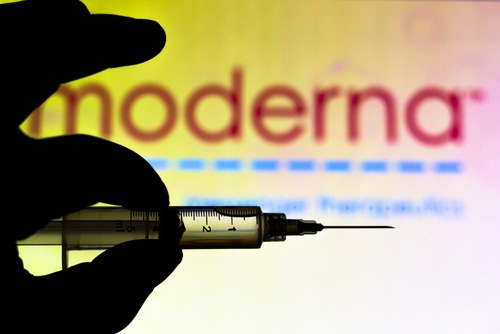
In a manuscript posted to a preprint server, Moderna Inc. addressed Monday the results of in vitro neutralization studies of sera from people vaccinated against emerging strains of SARS-CoV-2, which produced lesser, though still protective, results.
Specifically, the variants being fretted over are those identified first in the U.K. and the Republic of South Africa, B.1.1.7 and B.1.351. The former has proven to be more effective at infection, while the latter has worried health experts with its potential to diminish vaccine efficacy.
To an extent, that fear was realized in the study, which showed a six-fold reduction in neutralizing titers, though Moderna cautioned that this means its vaccine is still effective, just less so. However, for the U.K. variant, the vaccine was just as effective as ever. The results have spurred Moderna to test an additional booster dose of its COVID-19 vaccine to study the ability to boost efficacy against emerging strains. Normally, the vaccine consists of a two-dose regimen.
Going forward, the company is creating an emerging variant booster candidate targeted at the South African variant specifically. That candidate has gone into preclinical studies and a phase one study in the United States to evaluate any benefits it may provide.
“As we seek to defeat the COVID-19 virus, which has created a worldwide pandemic, we believe it is imperative to be proactive as the virus evolves,” Moderna CEO Stéphane Bancel said. “We are encouraged by these new data, which reinforce our confidence that the Moderna COVID-19 Vaccine should be protective against these newly detected variants. Out of an abundance of caution and leveraging the flexibility of our mRNA platform, we are advancing an emerging variant booster candidate against the variant first identified in the Republic of South Africa into the clinic to determine if it will be more effective to boost titers against this and potentially future variants.”
This study was conducted in collaboration with the Vaccine Research Center, a part of the National Institute of Allergy and Infectious Diseases (NIAID). Its results will be submitted for peer-reviewed publication at a later date.




